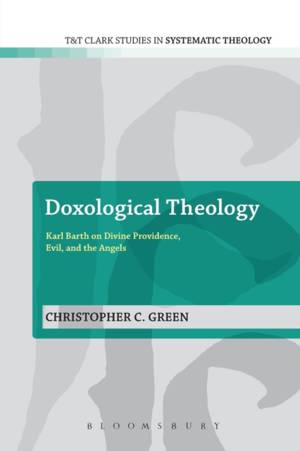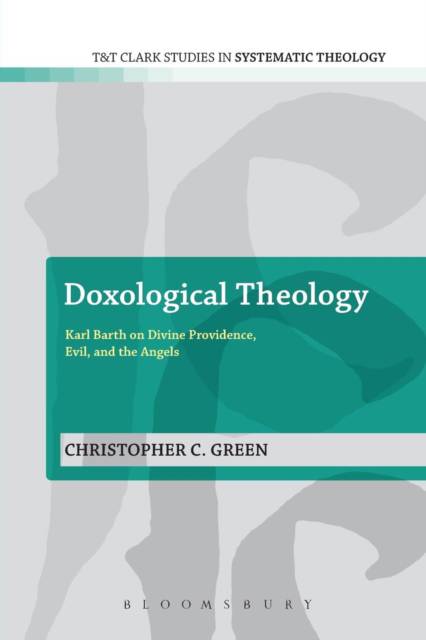
- Afhalen na 1 uur in een winkel met voorraad
- Gratis thuislevering in België vanaf € 30
- Ruim aanbod met 7 miljoen producten
- Afhalen na 1 uur in een winkel met voorraad
- Gratis thuislevering in België vanaf € 30
- Ruim aanbod met 7 miljoen producten
Zoeken
Doxological Theology
Karl Barth on Divine Providence, Evil, and the Angels
Christopher C Green, Green Christopher C
€ 89,95
+ 179 punten
Uitvoering
Omschrijving
In 1949, Karl Barth confidently upholds a high doctrine of divine providence, main-taining God's control of every event in history. His argument is at once cheerful, but also defiant in the face of a Europe that is war-weary and doubtful of the full sovereignty of God.
Barth's movement to praise God shows his affin-ity for the Reformed theological tradition. While Barth often distances himself from his Calvinist predecessors in important ways, he sees his own view of providence to be a positive reworking of the Reformed position in order to maintain what he un-derstands as its most important insights: the praiseworthiness of the God of provi-dence and the doxology of the creature. Doxological Theology investigates how the theologian, in response to the praiseworthy God of the Reformed tradition, is ex-pected to pray his or her way through the doctrine of providence.
Barth's movement to praise God shows his affin-ity for the Reformed theological tradition. While Barth often distances himself from his Calvinist predecessors in important ways, he sees his own view of providence to be a positive reworking of the Reformed position in order to maintain what he un-derstands as its most important insights: the praiseworthiness of the God of provi-dence and the doxology of the creature. Doxological Theology investigates how the theologian, in response to the praiseworthy God of the Reformed tradition, is ex-pected to pray his or her way through the doctrine of providence.
Specificaties
Betrokkenen
- Auteur(s):
- Uitgeverij:
Inhoud
- Aantal bladzijden:
- 256
- Taal:
- Engels
- Reeks:
- Reeksnummer:
- nr. 13
Eigenschappen
- Productcode (EAN):
- 9780567196514
- Verschijningsdatum:
- 23/05/2013
- Uitvoering:
- Paperback
- Formaat:
- Trade paperback (VS)
- Afmetingen:
- 156 mm x 234 mm
- Gewicht:
- 344 g

Alleen bij Standaard Boekhandel
+ 179 punten op je klantenkaart van Standaard Boekhandel
Beoordelingen
We publiceren alleen reviews die voldoen aan de voorwaarden voor reviews. Bekijk onze voorwaarden voor reviews.








